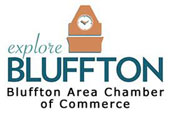With smart phones at many people’s fingertips all day, every day, a generation of young people have grown up with access to information at all times. But has all that information lead to an increase in knowledge?
That question was posed by Julia Spicher Kasdorf, professor of English and women’s studies at Pennsylvania State University, during a Nov. 29 Forum at Bluffton University titled “News from Poems.”
“Trading in information is not meaning-making. News—fake or real—is not knowledge,” explained Kasdorf. “It’s necessary to see the difference between information and knowledge. Knowledge involves thought, memory and emotion. It involves thinking and making connections.”
Kasdorf is a documentary poet who is currently working on a project about the human impact of fracking and other aspects of the shale gas boom in Pennsylvania. Documentary poetry is a form that weds the intensity of poetry with the accuracy of journalism.
Kasdorf believes documentary poetry both spreads information and inspires knowledge. “The most important role of literary writing in our day may be to help readers make meaning of information—by which I mean emotional sense and intellectual connection.”
Documentary poetry is not new. During her presentation, Kasdorf introduced students to several of her predecessors in documentary writing.
In the 1930s writer James Agee and photographer Walker Evans captured the lives of white share croppers in the American South through the book “Let Us Now Praise Famous Men.”
Whereas Kasdorf says Agee agonized over his role as a “spy” in a disadvantaged community, Evans summed up the need for documentary works with this quote: “Stare, pry, listen, eavesdrop. Die knowing something. You are not here long.”
Kasdorf also shared examples from the “mother and father of documentary poetry” Charles Reznikoff and Muriel Rukeyser.
Reznikoff, who had previously written summaries for law encyclopedias, used court transcripts for his first book of poems “Testimonies.” Using a technique now known as erasure, he cut down the court transcripts to their essential core. “He showed a moment from everyday life in an attempt to evoke an emotion,” said Kasdorf. Reznikoff explained his role as “the witness of witnesses.”
Rukeyser chronicled the lives and deaths of the men who fell ill to black lung after working in a silica mine in West Virginia for “The Book of the Dead” three years after the events had been published in newspapers. The book combined transcripts, interviews and Rukeyser’s own eye-witness accounts. “Her poems were not news, but they helped people make emotional and rational sense of the tragedy,” said Kasdorf.
These examples and examples Kasdorf shared from more contemporary writers examine how “Literature can bring meaning, empathy or even understanding to the news of this broken world,” said Kasdorf. “It can remind us of beauty and human connection when it seems that we are only separated. It can show us our own lives when they are invisible or outlawed. It can give us names for feelings we can’t explain.”
In her own writing, Kasdorf says she has struggled with many of the challenges in which other documentarians have struggled including the pressure to portray stories accurately and the politics of representation or who should be allowed to tell the story.
Kasdorf’s response in relation to her work on fracking: “I’m here.”
“I have no power to intervene in the polarized debates about the natural gas industry and its impacts on local communities and landscapes,” said Kasdorf. “All I can say is that I’ve gone there and listened to people and driven those roads behind those trucks. And I have come to care about those places and people.” She is now writing poems that express what she has seen and heard, and they will be published in a book with photographs titled “Shale Play.”
Kasdorf came to Bluffton as the keynote speaker for the annual English Festival, a day where high school students are invited to campus to sharpen their writing skills and to learn more about Bluffton University’s English department.


